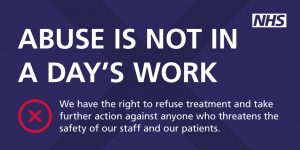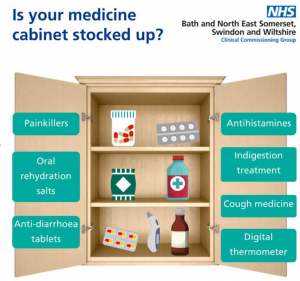The practice fully supports the NHS Zero Tolerance Policy. The aim of this policy is to tackle the increasing problem of violence against staff working in the NHS and ensures that doctors and their staff have a right to care for others without fear of being attacked or abused.
We understand that ill patients do not always act in a reasonable manner and we will take this into consideration when trying to deal with a misunderstanding or complaint. We ask you to treat your doctors and their staff courteously and act reasonably.
All incidents will be followed up and you will be sent a formal warning after a second incident or removed from the practice list after a third incident if your behaviour has been unreasonable.
However, aggressive behaviour, be it violent or verbally abusive, will not be tolerated and may result in you being removed from the Practice list and, in extreme cases, the Police will be contacted if an incident is taking place and the patient is posing a threat to staff or other patients.
More information can be found on our Zero Tolerance pages of our website




